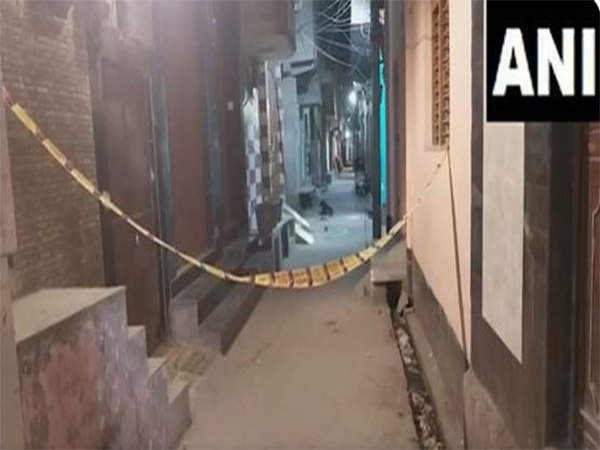Taiwan 'needs to prepare' for possible military conflict with China, says foreign minister
Jun 25, 2021

Taipei [Taiwan], June 25 : Taiwan's Foreign Minister Joseph Wu has said that China's escalating military intimidation of Taipei shows that the self-governed island 'needs to prepare' for a possible military conflict.
In an interview with CNN on Wednesday, Wu said: "As Taiwan decision makers, we cannot take any chances. We have to be prepared... When the Chinese government is saying they would not renounce the use of force, and they conduct military exercises around Taiwan, we would rather believe that it is real."
His remarks come after Taiwan reported the largest daily incursion by Chinese military planes into its self-declared Air Defense Identification Zone (ADIZ). The incursion by 28 Chinese warplanes including fighter jets and bombers was seen as a show of strength by China's People's Liberation Army (PLA).
Wu has been accused by China last month of being a "diehard separatist" after remarks he made during a news conference that Taiwan would fight "to the very last day" if attacked by China.
In response, Wu told CNN he is "honoured" to be targeted by Communist authorities in Beijing. "Authoritarianism cannot tolerate truth. If they continue to say that they want to pursue me for the rest of my life, I'm not really concerned about that," he said.
Wu also remarked that Taiwan cannot accept unification with China, especially as events in Hong Kong had shown that safeguarding Taiwan's sovereignty is crucial to protect its position as the world's only Chinese-speaking democracy.
He noted the imposition of the draconian national security law in Hong Kong, drafted by the ruling elite in Beijing, has been used to silence the city's pro-democracy movement. "If you look at the situation in Hong Kong, it is a modern tragedy," said the Taiwanese Foreign Minister.
Referring to Hong Kong newspaper Apple Daily's shutdown, the minister said: "The Apple Daily in Hong Kong is a symbol of independent journalism, and the Chinese government's motivation is to knock down that symbol. It is very sad for me to see what's happening," Wu said, while stressing that Taiwan is already a democracy.
Wu also stressed Taipei is willing to work toward achieving peace across the Taiwan Strait, and he called on Chinese leaders to jointly strive for a sustainable and peaceful coexistence.
"The status quo would include Taiwan not run or ruled by the People's Republic of China... I think it is a joint responsibility between Taiwan and China to have a peaceful and civil relation between the two sides, and also for a dialogue to take place," he told CNN.
He also accused China of using hybrid warfare to undermine public confidence in democracy on the island. "(China) uses cognitive warfare, disinformation campaigns and military intimidation to create a lot of anxiety among the Taiwanese people," he said.
The foreign minister accused Beijing-sponsored entities of publishing fake news stories to divide Taiwan's population, including messages that exaggerated the island's COVID-19 death toll.
"We have to engage in asymmetric warfare, so that China understands that there is a certain cost that it has to pay if they want to initiate a war against Taiwan," he stressed.
Taiwan and mainland China have been governed separately since the end of a civil war more than seven decades ago. However, Beijing continues to view Taiwan as an inseparable part of its territory even though the Chinese Communist Party has never governed the democratic island of around 24 million people.
A fragile status quo emerged almost 30 years ago, when Beijing and Taiwan's then-ruling Nationalists acknowledged a "one China" stance that has since been interpreted differently by the two sides.
That has changed when Taiwan's current leader, President Tsai Ing-wen, came to power. Tsai and her party have long rejected what's known as the "1992 Consensus" and she has repeatedly urged Beijing to recognise Taiwan's sovereignty and the wishes of its people.
Recently, the Group of Seven Seven leaders issued a joint statement, slamming China for a series of issues and underscored the importance of peace and stability across the Taiwan Strait -- comments China condemned as "slander."



















